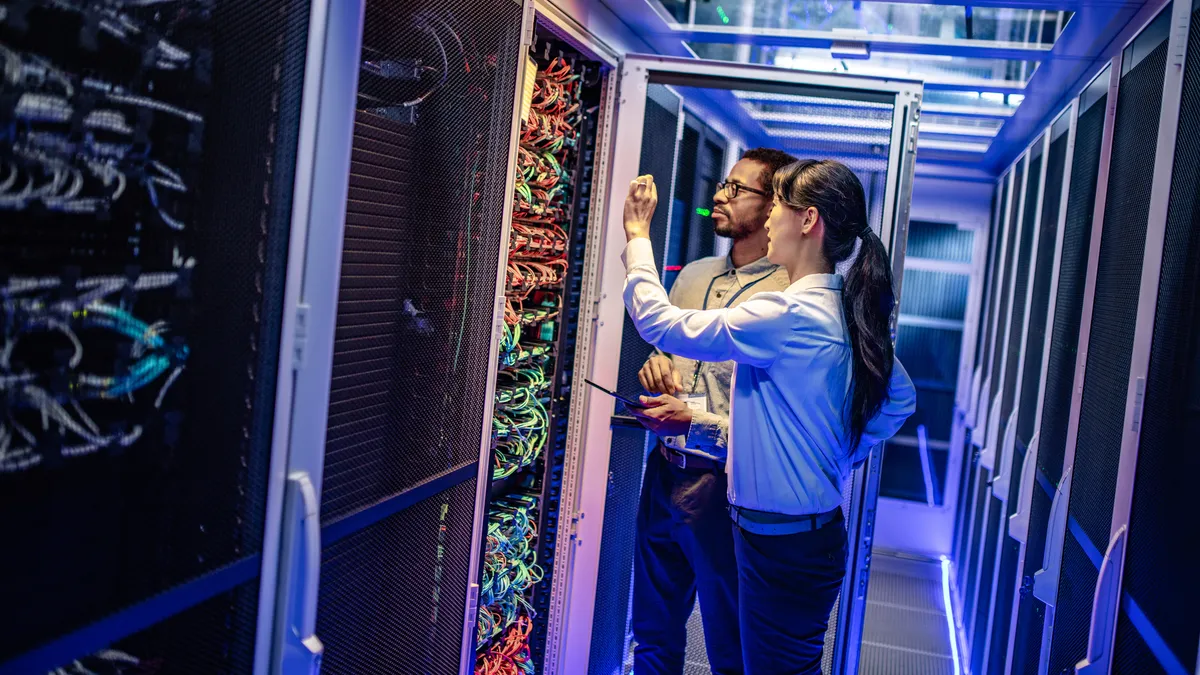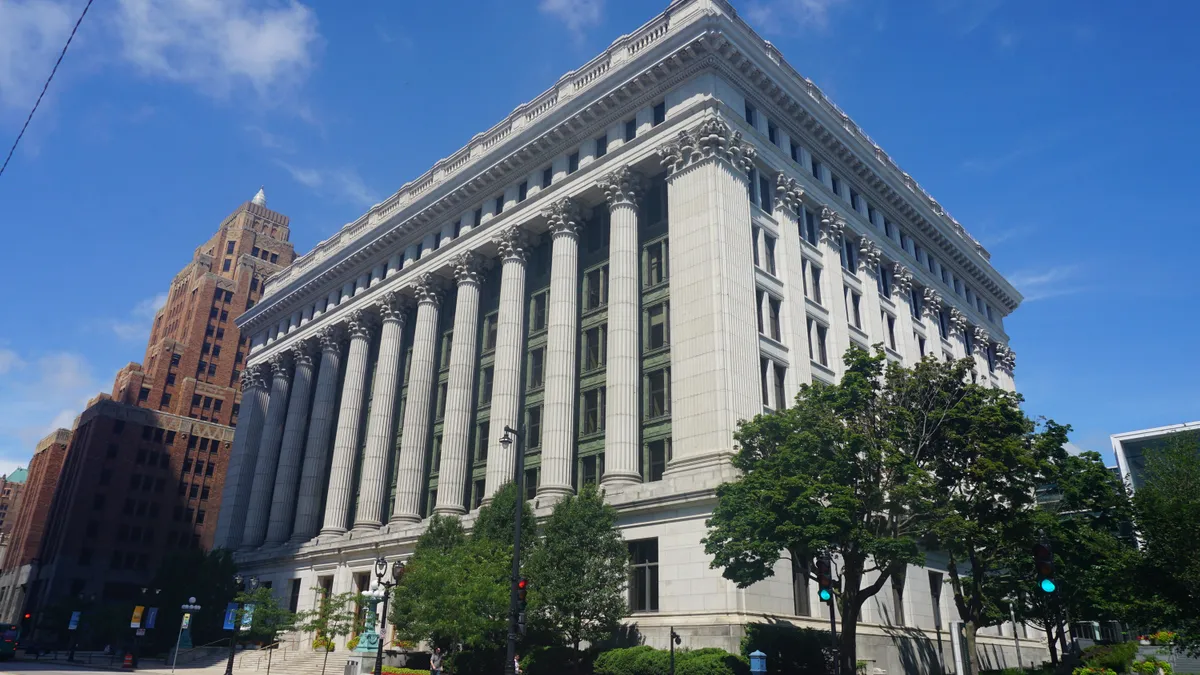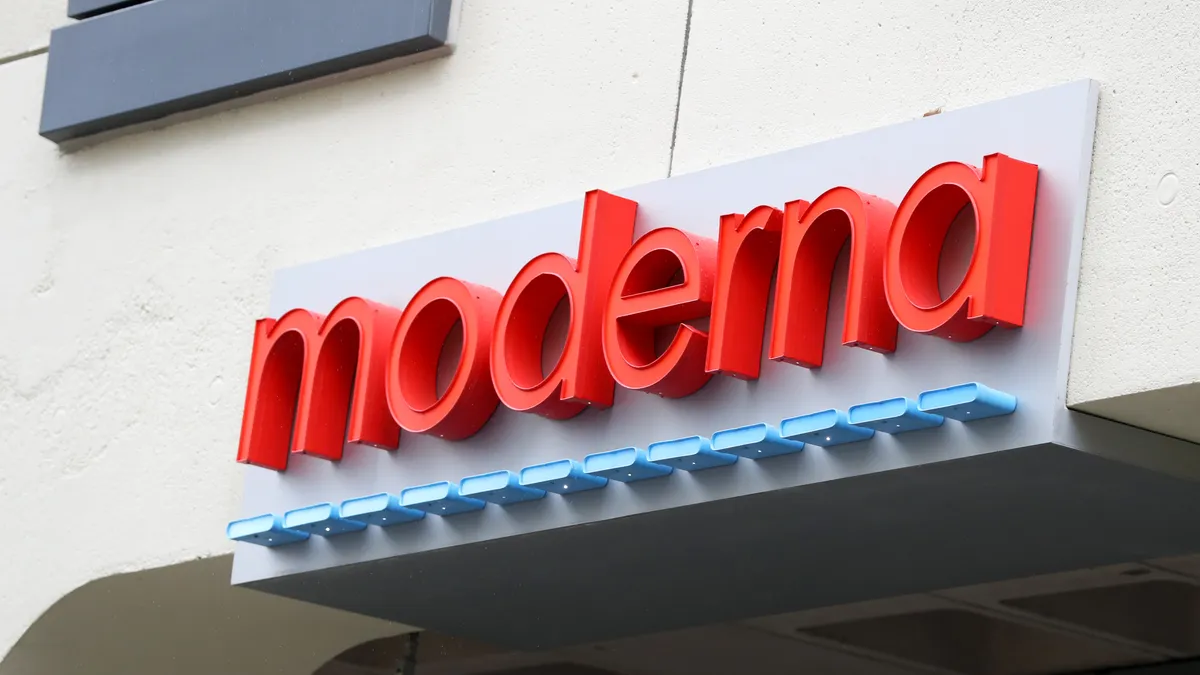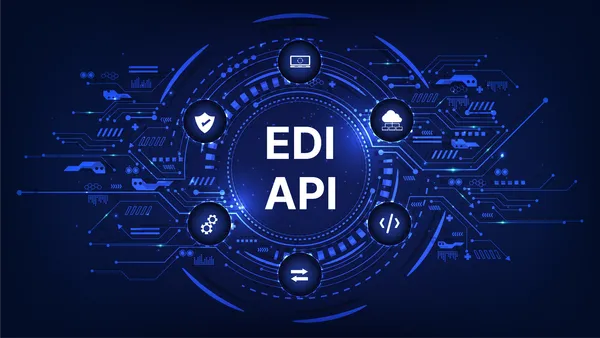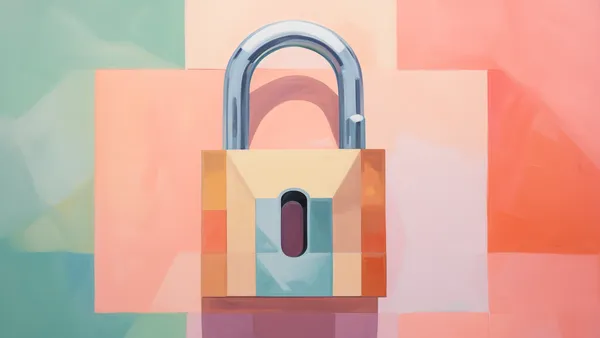On August 15, news broke that Customs and Border Protection (CBP), would be one of the first public entities to test blockchain’s efficacy as a tool to streamline government work — specifically the business of international trade.
The experiment, set to begin in September, will focus on the agency's free trade agreement certificate verification process — starting with NAFTA and CAFTA goods — said Vincent Annunziatio, CBP's Business Transformation and Innovation Division Director on a call with reporters, a week after the initial announcement.
Blockchain could help remove redundant requests in the current system of verifying trade agreement certificates and help the agency avoid situations that currently rely on postal services to move paper certificates — a minority, but still a major headache, Annunziato said.
"What's interesting with the blockchain, and one of the tests that we're running, is if the manufacturer or supplier actually submits the data, then not only is the government informed but so is the broker and so is the importer," he explained.
Anunnziato added he can now imagine a paperless CBP — where information that exists as documents today becomes raw data rather than an image file or physical page.
Fail fast, learn fast
CBP is using a "fail fast" strategy in testing blockchain's usefulness.
"When we test something, we want to invest small amounts of money with deliberate tests so that the government and private sector can see whether or not something is going to work. If it doesn't work, we still gain,” said Anunnziato.
Spend less and get a "yes" or "no" answer quickly as to whether a technology is relevant — that's the theory borne in Silicon Valley and now in use in Washington, DC. This "fail fast" method is a big shift for a government agency used to the more traditional "pilot" model, where tech is completely built out and then tested in a single region before rolling out nationwide.
The Business Transformation and Innovation Division within CBP is only about nine months old and has so far been mostly focused on testing blockchain for the agency, explained Annunziato, who has spent most of his career at CBP after joining as an officer more than 20 years ago.
The "proof of concept" process began last summer, when CBP approached Commercial Customs Operations Advisory Committee (COAC) members and partner government agencies to crowdsource a use case on which to test blockchain. They landed on free trade certificates, and the Department of Homeland Security (DHS) then built a blockchain to fit along with Digital Bazaar, a blockchain startup out of Blacksburg, Virginia.
In terms of other private sector partners, many have asked, but so far the agency is moving cautiously.
"I’ve been in conversation with IBM and Maersk [who are developing a blockchain program for global ports], but we are not currently working with them. I get approached a lot from the outside. There are a number of companies doing a lot of blockchain work so what I ask for is any company that wants to do work with CBP to submit a proposal because we have to go up through the chain," he said.
As for the test at hand, DHS's blockchain system of verification will run simultaneously with the existing system for three weeks, beginning September 4. At the end of three weeks, if the blockchain data looks the same as the "system of record," then the test will have been a success. But that's not where the testing ends — that's where it begins.
Don't call it a pilot
Even if the proof of concept is successful, CBP still may not choose not to implement the tech.
"It's the agency's decision on whether or not they want to go forward," said Annunziato. And even if CBP decides to move toward a full implementation, there is still much to decide.
What information is OK to be public? CBP and DHS have worked this out for their own purposes — encrypted links will keep the confidential material out of the hands of the approved users on the private blockchain. But what about the private sector companies passing through? Competitors may end up with more access to each other's data and activities than the status quo.
Another open question is around the issue of interoperability — will CBP's program work equally well with any and all software a private sector company might be using? DHS is already working on this one with the major players including Microsoft and IBM.
The possibilities for blockchain at CBP (and everywhere else) are generating excitement. But Anunnziato is pragmatic that the technology may not live up to the hype.
"A lot of our role right now is to weed through that hype," he said.









